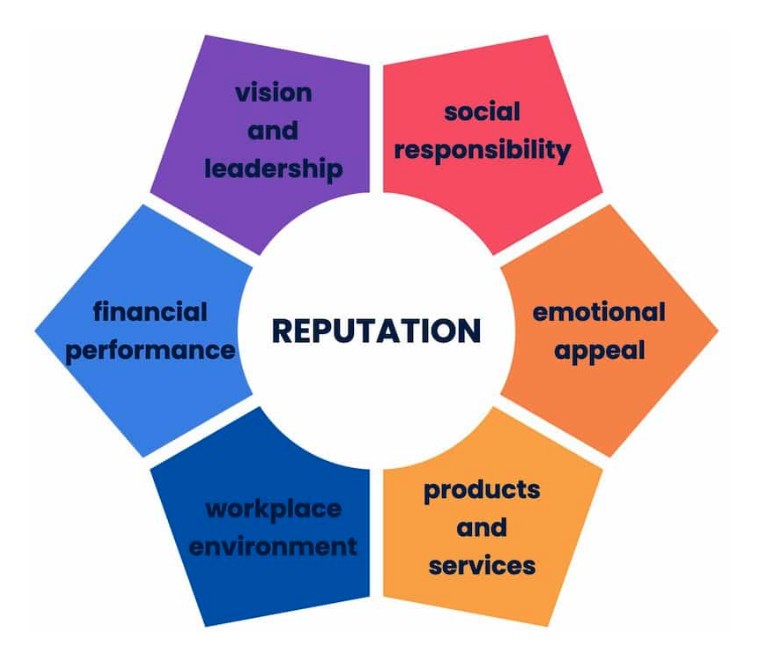From Dilemma to Possibility: Leveraging Online Reputation Administration in Times of Misfortune
In today's fast-paced and interconnected world, people and organizations face the continuous danger of situations and hardships that can potentially damage their hard-earned online reputation. In this conversation, we will check out the art of leveraging online reputation management during times of dilemma, supplying understandings and techniques that can change a tough scenario right into a stepping rock for success.
Understanding Credibility Administration
Recognizing credibility administration is critical for people and organizations seeking to preserve a favorable public image and reduce possible damage in times of adversity. Reputation administration encompasses the approaches and techniques utilized to form, maintain, and secure an individual's or organization's credibility (Reputation Management). It involves proactively checking what is being said concerning the specific or service, both online and offline, and responding properly to any destructive or adverse information
In today's electronic age, where info spreads out quickly and can have a long lasting influence, track record management has actually ended up being a lot more important. Social media site platforms, on-line evaluation websites, and news electrical outlets can rapidly intensify any type of adverse promotion or objection, potentially triggering significant injury to a person's or organization's reputation. By comprehending online reputation administration, people and companies can efficiently browse these challenges and proactively resolve any problems that may occur.
Trick components of online reputation administration include checking online examines and mentions, engaging with stakeholders or clients, resolving unfavorable comments or objection in a timely and expert way, and proactively managing on-line accounts and web content. Additionally, businesses and individuals ought to make every effort to develop a solid credibility by providing on pledges, providing outstanding customer care, and taking part in moral practices.
Determining Misfortunes and Situation Situations

To recognize these misfortunes and crisis scenarios, organizations require to establish a robust surveillance and early warning system. This includes actively keeping track of traditional media, social media sites platforms, on-line discussion forums, and other pertinent sources for any kind of negative conversations or possible risks connected to the company. Reputation Management. By remaining proactive and cautious, companies can rapidly react and find to arising concerns, stopping them from spiraling out of hand
In addition, companies must likewise conduct normal danger analyses to determine possible susceptabilities and powerlessness in their operations. When they do take place, this allows them to develop backup strategies and protocols to deal with crises effectively. By being prepared and proactive in identifying adversities and crisis circumstances, organizations can better shield their reputation, maintain stakeholder depend on, and eventually turn misfortune into chance.
Building a Situation Feedback Technique
Developing an effective situation feedback method is essential for organizations to successfully browse with hardship and safeguard their track record. In times of situation, organizations should be prepared to respond quickly and effectively to mitigate the influence on their stakeholders and keep public depend on. Developing a dilemma reaction strategy entails numerous essential steps.
To start with, companies require to establish a crisis monitoring group included key people from various departments. This group needs to be in charge of implementing the crisis and developing response plan. They should have a clear understanding of the company's values, objectives, and vital stakeholders.
Second of all, organizations must perform a comprehensive risk assessment to recognize possible dilemmas that might occur and examine their prospective influence. This includes assessing outside and internal aspects that might bring about a dilemma, such as operational disturbances, monetary issues, or reputational threats.
Following, organizations need to establish an interaction plan that details how they will connect with their stakeholders during a crisis. This strategy needs to include regular and clear messaging, as well as networks and systems to reach various audiences.
In addition, organizations need to establish procedures for surveillance and examining the situation response technique. This consists of on a regular basis assessing and updating the plan to ensure its efficiency and making needed changes based upon lessons learned from previous dilemmas.

Making Use Of Social Media in Reputation Management
Social media has actually come to be an integral device for organizations in handling their reputation during times of difficulty. With the increase of social networking systems such as Facebook, Twitter, and Instagram, organizations currently have the possibility to straight engage with their stakeholders and attend to any worries or issues that may develop.
Throughout times of crisis, social media enables find more info companies to promptly share information, provide updates, and communicate their side of the story. By actively taking part in social media sites discussions, companies can monitor public sentiment, address misinformation, and demonstrate transparency and accountability.
One of the key advantages of utilizing social media in credibility administration is the capability to reach a large audience in real-time - Reputation Management. Through social media platforms, companies can involve with stakeholders from throughout the globe, regardless of geographical limits. This enables them to not just handle their online reputation in your area however likewise on a worldwide scale
Another advantage of making use of social media sites is the have a peek here interactive nature of these systems. Organizations can actively listen to their target market, reply to their worries, and demonstrate a determination to deal with issues. This degree of involvement assists build trust and reliability, which are essential for credibility management.
Nonetheless, it is very important for organizations to come close to social media sites with caution. Missteps or unacceptable actions can rapidly rise a dilemma and further damages the organization's reputation. It is essential for companies to have a well-defined social media method in location, with clear guidelines on just how to attend to crisis scenarios.
Turning Situation Into Possibility: Case Studies
A number of organizations have actually effectively turned dilemmas into opportunities by efficiently handling their credibility and carrying out calculated actions. These case research studies highlight the value of positive credibility management during times of misfortune.
One such study is the Tylenol dilemma in 1982. When 7 people died after taking in cyanide-laced Tylenol pills, Johnson & Johnson took prompt action to safeguard its track record. The firm swiftly recalled 31 million containers of Tylenol, reestablished the item with tamper-proof packaging, and executed a clear interaction strategy. By prioritizing consumer security and freely addressing the crisis, Johnson & Johnson not only gained back customer trust fund but also set brand-new sector standards for item safety and security.
Another notable example is the Domino's Pizza dilemma in 2009. Two employees recorded themselves meddling with food in a Domino's kitchen and posted the video online. In response, Domino's right away apologized and introduced an extensive online campaign to address the crisis. The firm's chief executive officer personally dealt with the issue in a YouTube video clip, demonstrating transparency and commitment to consumer satisfaction. This aggressive technique helped Domino's regain consumer count on and even raise sales adhering to the occurrence.
These study demonstrate the significance of speedy activity, transparency, and reliable communication consequently situations into here possibilities. By efficiently handling their credibility and applying tactical activities, organizations can not just alleviate the negative influences of a dilemma but additionally emerge more powerful and much more resilient.
Conclusion
Leveraging social media as a tool in online reputation monitoring can additionally improve organizations' ability to resolve dilemmas and interact with stakeholders. Through aggressive and calculated online reputation administration, crises can be transformed right into opportunities for development and enhancement.
By being prepared and proactive in recognizing difficulties and dilemma situations, companies can better shield their track record, maintain stakeholder trust fund, and eventually turn misfortune into possibility.
Developing a reliable dilemma feedback method is vital for organizations to efficiently navigate via misfortune and protect their online reputation. Errors or inappropriate actions can rapidly rise a dilemma and more damage the company's credibility. Leveraging social media as a device in credibility monitoring can additionally enhance organizations' capacity to deal with crises and connect with stakeholders. Through tactical and aggressive track record monitoring, crises can be transformed into opportunities for growth and enhancement.